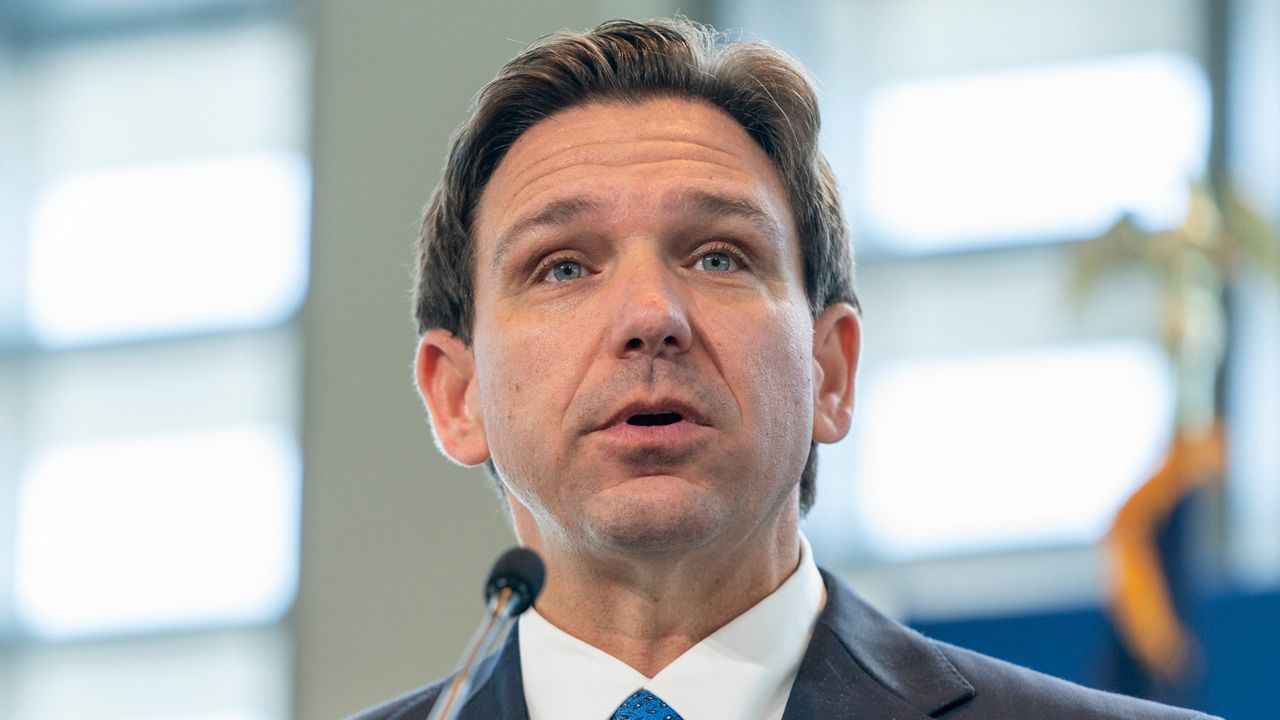Jacksonville, Fla. — Gov. Ron DeSantis signed House Bill 3 on “Government and Corporate Activism” on Tuesday in Jacksonville alongside Florida Chief Financial Officer Jimmy Patronis.
What You Need To Know
- On Tuesday, Florida Gov. Ron DeSantis signed House Bill 3, which targets environmental, social and governance (ESG) investments
- He announced the legislation in February, saying that it would "protect consumers' investments"
- Proponents of ESG investment argue that the practice can actually create safer, more stable returns for investors
- The legislation will ban "social credit scores" and forbid banks from precluding customers based on their beliefs
The bill was targeted at environmental, social and governance (ESG) investment practices that consider social and environmental factors when making investment decisions.
To that end, the new law will block the use of ESG in all investment decisions at the state or local level, as well as prohibit state or local governments from using such considerations when making procurement decisions.
According to US SIF, 85% of all investors are interested in sustainable investing, and proponents of ESG argue that taking social criteria into account will allow investors to make better long-term investment decisions.
"Sustainable investors seek investments in resilient companies that can address structural and systemic risks while finding innovative opportunities in a more sustainable economy," US SIF said on its website. "They provide capital to the most innovative parts of our economy, including electric vehicles, solar panels, sustainable and green building technologies. They invest in innovations in biotechnology and science to help people live healthier lives and adaptive technologies to help traditional industries adjust to a more sustainable future."
When he announced the measure in February, though, DeSantis decried the practice and said his move to ban it, "builds on my commitment to protect consumers' investments and their ability to access financial services in the Free State of Florida."
"By applying arbitrary ESG financial metrics that serve no one except the companies that created them, elites are circumventing the ballot box to implement a radical ideological agenda," he said in a statement at the time. "Through this legislation, we will protect the investments of Floridians and the ability of Floridians to participate in the economy."
Another provision in the new law would preemptively ban financial institutions from discriminating against customers for their religious, political or social beliefs, with language specifically addressing owning a firearm, being pro-fossil fuels or in support of a strong border.
So-called “social credit scores” were also preemptively banned by the law, which asserts that such scores could be used to prevent residents from obtaining loans or bank accounts.
"In Florida and across the nation, we've heard from law-abiding small business owners and consumers who've been denied access to financial services because of where they work or what they believe in," said DeSantis at the bill signing. "Through this legislation, Florida will continue to lead the nation against big banks and corporate activists who've colluded to inject woke ideology into the global marketplace, regardless of the financial interests of beneficiaries.”
A House of Representatives Staff Analysis of the bill released in March said that the law may limit the ability of some financial firms to provide services to state or local governments in Florida. The analysis also indicated that there could be a constitutional issue with the measure because county or municipal governments could incur additional expenses as a result of some of the directives of the measure.
HB 3 was passed in the House in March along party lines, and the Senate in April.




